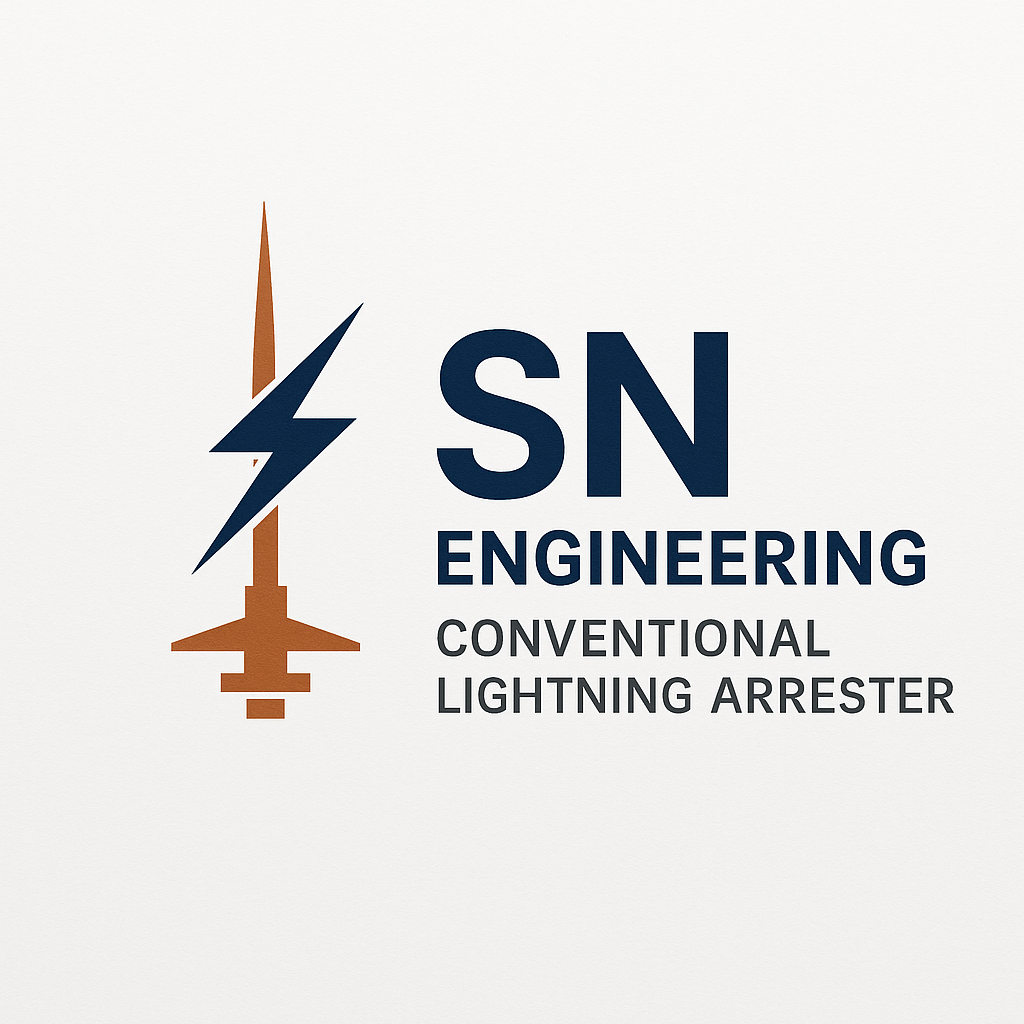
🔹 What is Conventional Copper Bonded Lightning Protection?
A Conventional Lightning Protection System (LPS) is designed to safeguard buildings, structures, and assets from direct lightning strikes by providing a safe path for the discharge current to the ground.
When made with copper bonded material, the system uses copper bonded air terminals, conductors, and earthing electrodes, which offer excellent conductivity, high corrosion resistance, and long service life.
🔹 Main Components of a Conventional Copper Bonded LPS
Air Terminals (Lightning Rods)
Installed at the highest points of the structure (rooftops, towers, chimneys, etc.).
Made of copper bonded steel rods.
Captures lightning strikes and transfers energy to the down conductor.
Down Conductors
Copper bonded conductors (flat strips or round wires).
Provide a low-resistance path from the air terminal to the grounding system.
Fixed on building surfaces with clamps and saddles.
Earth Termination Network (Earthing System)
Copper bonded earthing electrodes (pipes, rods, or plates).
Safely dissipates lightning current into the ground.
Designed to achieve earth resistance < 1 ohm (ideal for lightning protection).
Equipotential Bonding
Ensures all metallic parts of the structure are at the same potential.
Reduces side-flashing hazards during lightning strikes.
🔹 Standards Followed
IEC 62305 (Protection against Lightning)
IS/IEC 62305 (Indian adaptation)
NFPA 780 (US Standard)
These define:
Placement of air terminals (using rolling sphere, mesh, and protective angle methods).
Minimum size of conductors.
Earthing resistance requirements.
🔹 Advantages of Copper Bonded LPS
✅ High electrical conductivity
✅ Superior corrosion resistance (copper bonded coating on steel core)
✅ Long life expectancy (20–40 years depending on soil conditions)
✅ Cost-effective compared to pure copper
✅ Low maintenance once installed
🔹 Applications
Residential & commercial buildings
Industrial plants & warehouses
High-rise towers
Airports, railways & metro stations
Power plants & substations

